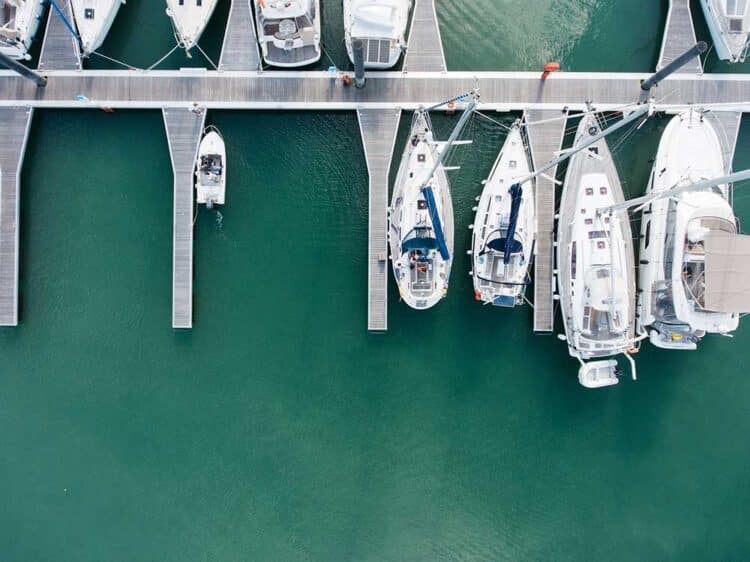The Financial Side of Owning a Boat: Planning and Preparation
Owning a boat is a dream for many, offering a unique way to enjoy leisure and adventure on the water. However, managing the financial aspects of owning one can be elaborate and necessitates thorough deliberation beforehand.
Not only does one have to think about acquisition costs but also expenses like maintenance charges, insurance policies as well as storage fees, among others. With careful consideration of these expenditures, though, it’s possible to make certain that owning and enjoying your boat will remain sustainable for years to come.
Keep on reading to find out more about the financial aspects of being a boat-owner.

Grasping the Initial Expenses
One of the most apparent expenses when buying a boat is its initial cost, which can vary greatly depending on its type, size and age. In this context, it isn’t uncommon for aspiring boatowners to often take out loans to purchase their dream vessel. If you’re also considering this option, it’s always a good idea to look into boat loan rates and see how to manage this financial undertaking the right way.
While brand-new boats generally come with higher price tags than second-hand ones, buyers must also take into account any required equipment or accessories like safety gear, navigation tools and upgraded features.
It is essential to factor in the expense of obtaining a marine survey when contemplating a boat purchase. This expert evaluation can pinpoint any potential problems and guarantee that the vessel is in satisfactory condition beforehand. A comprehensive review could save you from unforeseen repair expenses while also offering assurance about your decision.
Planning and Managing Continuous Expenses
After acquiring the boat, you must take into account continuous expenditures which consist of upkeep, fuel and repairs. Consistent maintenance is paramount to maintaining excellent functioning conditions as well as avoiding expensive malfunctions. Whether you’re planning on taking a scenic boat ride to stunning Dog Beach in Santa Cruz, CA, with your family or spending a serene afternoon floating on calm waters, you have to ensure your boat is in top shape.
When it comes to maintenance, it typically entails servicing the engine, tidying up the hull or substituting worn-out components. On the other hand, the expenses of fuel can vary depending on the engine type and usage, with bigger boats or ones that have powerful engines consuming more. It’s also possible for unforeseen repairs to crop up; thus, it is wise to allocate a contingency fund towards these prospective expenditures.
Costs Associated With Insurance and Safety
Boat ownership necessitates insurance as a crucial element to safeguard against diverse potential hazards like damage, theft or liability. The expense of such insurance is determined by factors including the kind of boat owned, its worth and the owner’s proficiency. To ensure sufficient coverage tailored to personal requirements, it is essential to compare various policies before choosing one.
Apart from insurance, the overall budget must consider safety expenses. This encompasses acquiring safety gear like life jackets and fire extinguishers as well as conducting regular inspections to adhere to boating regulations. Meeting all safety prerequisites will not only safeguard the boat and its occupants but also efficiently regulate insurance premiums.
Expenses for Storage and Mooring
Another important financial consideration for boatowners is storage and mooring. The costs can differ significantly depending on the size of your vessel as well as its location. There are two choices for boat storage: dry storage, in which the vessel is stored on land, or wet storage where it remains docked at a marina.
When it comes to marina fees, they frequently encompass charges for dock space and utilities along with extra amenities like upkeep and protection services. Alternatively, dry storage usually incurs expenses related to rack or trailer parking. Picking the right storage alternative entails finding a solution that corresponds with both the boat’s usage and the owner’s desires while staying within an established budget.
Planning for Long-Term Costs
Apart from current and continuing expenditures, it is imperative to take into account the enduring expenses which may comprise depreciation, probable enhancements, and the ultimate reselling price. Just like most vehicles, boats tend to depreciate over time; hence, factoring in depreciation serves as a crucial aspect of financial planning.
Long-term costs can also arise from upgrades and modifications, such as the addition of new technology or improvements to enhance the boat’s features. It is important to plan for these potential expenses in order to effectively manage one’s overall investment.

Final Thoughts
Purchasing a boat entails more than just an initial expense; it requires financial readiness and organization to handle the many expenses that come with ownership. Wise budgeting for start-up and ongoing costs, insurance fees, storage charges, as well as long-term economic factors, is crucial in enabling boatowners to relish their investment without compromising their monetary soundness.
By diligently planning ahead of time, boating enthusiasts can ensure they avoid unexpected money-related pressures while enjoying pleasurable experiences on the water.
EXPLORE SOMEWHERE NEW
BUY A PRINT
All photos on this site are available as limited edition fine art photographic prints. Please get in touch for sizes and rates.




